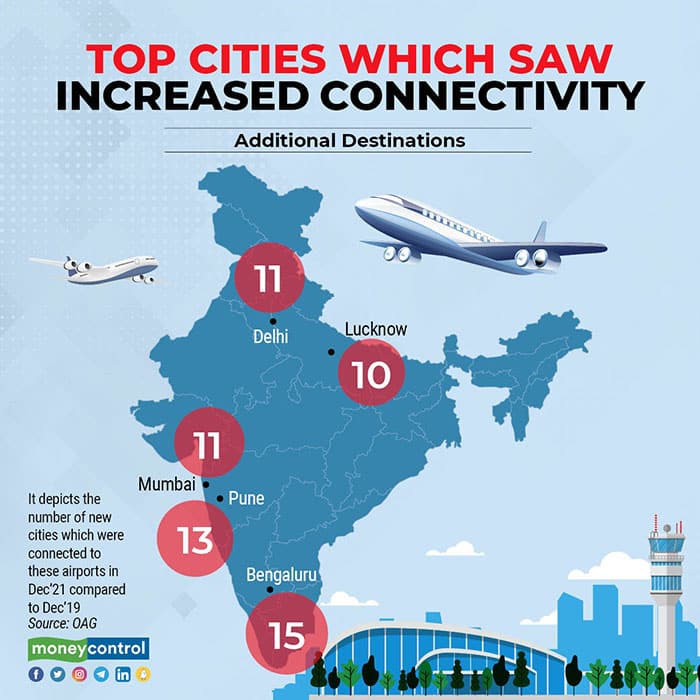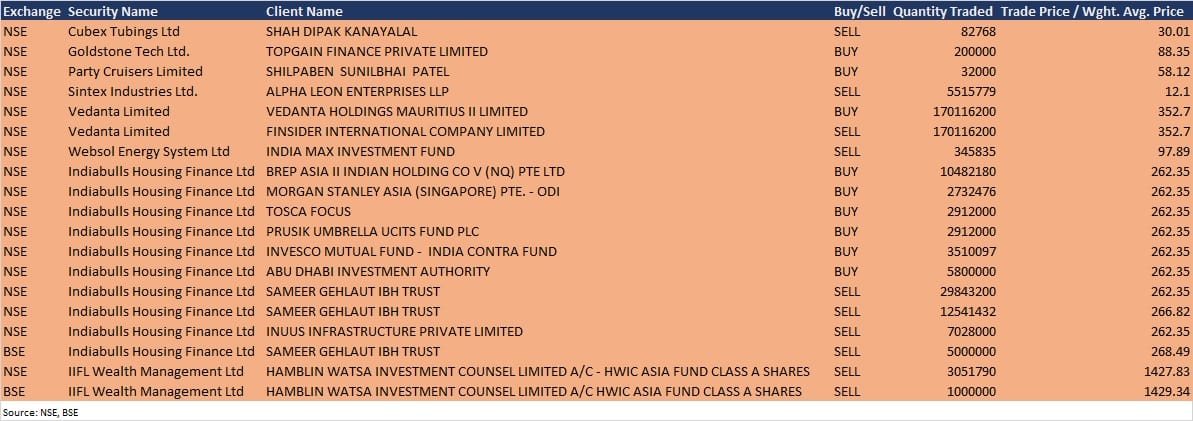
A round-up of the biggest articles from newspapers
1. Reserve Bank says retail inflation might have peaked in September
Retail inflation based on the consumer price index, which stood at 7.4 percent in September, might have peaked and could fall going ahead thanks to easing momentum and favourable base effects, according to the State of the Economy report released by the Reserve Bank of India (RBI). It, however, cautioned that the fight against inflation would be prolonged.
Why it’s important: By the central bank’s own admission, it will not be easy to tame inflation. It has estimated that retail inflation will fall to 5 percent in the second quarter of the next financial year, and it would take two years to reach the central bank’s target of 4 percent with a 2 percent variation.
2. RBI likely to blame supply issues for failing to meet inflation target
The RBI is likely to blame supply side issues for the runaway price rise in a mandatory letter to the government. Under Section 45ZA of the RBI Act, the government in consultation with the central bank sets retail inflation target once in five years. Failure to meet the current target of 2-6 percent for three consecutive quarters requires RBI to write a letter to the government, explaining why it missed the goal. Retail inflation in September was 7.41 percent, staying above the 6 percent upper limit for three consecutive quarters.
Why it’s important: The central bank has a strong case to say supply side issues are causing inflation and it has raised interest rates to control demand. The rest depends on fiscal measures to arrest supply side problems, which include improving food supply and building domestic capacity for edible oil production.
3. Byju’s raises $ 250 million from existing investors through rights issue
Edtech firm Byju’s has closed a financing round of $ 250 million from its existing investors, including Qatar Investment Authority, which led the round with over $ 100-150 million. It includes sale of secondary shares by existing investors of the edtech firm. The primary fundraise was executed at its previous valuation of $ 22 billion, while the secondary stake sale took place at a discounted price. This was part of an $ 800 million fundraising announced in March, out of which founder Byju Raveendran infused $ 400 million.
Why it’s important: The latest fundraise comes after Byju’s announced a series of measures to optimize operations by downsizing staff and achieving profitability by March next year.
4. KKR Digital in discussions to invest $ 125 million in fintech firm Razorpay
Private equity firm KKR is in talks to invest in fintech start-up Razorpay and likely buy out some of its existing early-stage investors in a secondary transaction. The buyout fund is also likely to invest in the company’s primary funding round along with its other investors. KKR Digital, set up to scout for opportunities in digital businesses, is going to lead the round.
Why it’s important: Razorpay provides payment gateway services. That the new funding is at a flat valuation seems to be commendable given the tighter funding environment.
5. Government may infuse Rs 5,000 crore equity in state-owned general insurance firms
The central government may infuse about Rs 5,000 crore in equity into state-run general insurers to help them achieve solvency requirements as they are meeting a higher wage bill. The employee wage revision approved earlier this month, along with five-year arrear payments, are expected to cost the four general insurers an additional Rs 8,000 crore. This equity support is in addition to the Rs 5,000 crore infused this year in National Insurance (Rs 3,700 crore), Oriental Insurance (Rs 1,200 crore) and United India Insurance (Rs 100 crore).
Why it’s important: the insurance regulator has mandated that all general insurers need to have a solvency ratio of 1.5. The fund infusion will help the state-owned firms achieve this ratio. Of the four state-run general insurers, only New India Assurance is profitable.
6. Diesel cars may cost more by Rs 80,000 to meet tighter emission norms
From the next financial year starting April, as the second phase of Bharat Stage VI emission norms kicks in, the new rules may increase the cost of producing diesel vehicles by nearly Rs 75,000 to Rs 80,000, and petrol-powered ones by Rs 25,000 to Rs 30,000. Carmakers will have to optimize engines, install advanced after-treatment systems that reduce nitrogen emissions, and put in particulate matter sensors, which will cause the costs to increase.
Why it’s important: The cost increase could provide a boost to hybrid vehicles as the price gap between diesel and hybrids will likely decrease because of the potential price hikes. All major carmakers have recently launched competitively priced hybrid models.
7. UNDP says India pulled 140 million out of poverty since 2014-15
India’s multidimensional poverty fell by 140 million between 2015-16 and 2019-2021, according to the latest assessment by the UNDP. Using latest data from the National Family Health Survey, it said poverty declined faster from 2015-2016 to 2019-21 at 11.9 percent year-on-year compared with an 8.1 percent per year fall from 2005-2006 to 2015-2016.
Why it’s important: UNDP said the faster fall in multidimensional poverty in the later years was not surprising because relative poverty reduction is easier to achieve when starting levels are lower. Despite the tremendous gains, eradicating poverty is still a daunting task.
8. Invesco fund to sell 5.51 percent stake in Zee for $ 169.5 million
Invesco Developing Markets Fund will sell a 5.51 percent stake in Zee Entertainment Enterprises in a block trade that will fetch the investor as much as $ 169.5 million. The trade will see Invesco offload over half of its stake in Zee Entertainment, which stood at 10.14 percent in June and held through OFI Global China Fund.
Why it’s important: The US investor had earlier expressed concerns over how the board and managing director ran the firm. Invesco’s acrimony with Zee reached the company law tribunal. Although it has since gone back on its stand, a gradual exit was expected.
9. Budget mobile phones may cost more after Diwali on a weakening rupee
High-volume entry segment smartphones may see a 5-7 percent increase in prices during October to December due to the steadily weakening rupee. Smartphone brands have been largely holding back and absorbing the increased cost of imported components to spur demand during the festive season. That could change from November.
Why it’s important: The higher price tags could hurt already fragile demand in India and lower the overall shipment numbers for the year.
10. India unlikely to join US push to cap prices of Russian crude oil
India is reluctant to join a US-led global initiative to cap prices of Russian crude oil, as it gets a steep discount on oil cargoes from Russia and wants to maintain the relationship with its long-time strategic partner. The price cap is designed to reduce Russia’s revenues and its ability to fund the Ukraine war and limit the impact on global energy prices, particularly for low and middle-income countries. Russia has warned it will snap oil supplies to any nation that joins the plan.
Why it’s important: As the world’s third-largest crude oil importer, India’s stance will influence the efficacy of the price cap plan.


